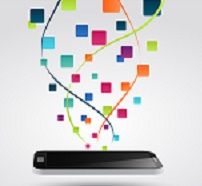Article
Prize-winning Hepatitis B Mobile App Diagnostic Tool
Author(s):
A Stanford University research team has developed mobile hepatitis B testing that can be conducted at home or in remote locations.

Students and faculty from Stanford University developed a portable device that can be used to detect hepatitis B infections via the microprocessor in a smart phone.
The researchers won a $120,000 cash prize, which will be put back into their research efforts, from the Nokia Sensing XChallenge. The competition was a global competition formed to create breakthrough medical detection technologies, which ideally can advance faster diagnoses and easier personal health training worldwide. The Stanford team hopes their product can be used in developing countries where vaccinations or timely treatments may not be as readily available.
“If we can develop an accurate and portable diagnostic test to determine who is infected, we can give the appropriate treatment and prevent millions of hepatitis B-related deaths,” Paul J. Utz, MD, Professor of Medicine at Stanford, said in a video presentation. “We’re bringing to you a novel platform that puts your health in your own hands.”
A drop of blood, which is placed in the shaker tube and into the machine, is required to run the test. Magnetically tagged biomarkers are identified within the machine, and are then displayed within minutes on the phone’s interface.
The portable device can run many diagnostic tests on the same chip simultaneously, including hepatitis B, which can be completed in less than 10 minutes. Traditional hepatitis B lab tests may take days to come back with accurate results. Some other tests include hepatitis C, human immunodeficiency virus (HIV), and influenza. The test unit can also be used to test for cardiovascular and autoimmune diseases and cancer.
The researchers based their technology on the 2007 Nobel Prize-winning technology called the magnetoresistance principal, which has since revolutionized information storage on the internet. In medical applications, this technology only costs a few dollars, according to the video.
The developers stress that this unit has not been created only for ill patients, but can be used to conduct at-home tests for condition monitoring. Results from tests conducted at home or even in remote areas can then be sent to doctors via email or the cloud from the app. The app can track the history of all medical tests it has performed, such as immune system status, which a doctor can access as well.
The Stanford team was one 5 teams to win, from a total of 90 teams representing 4 countries. All of the work was judged by a panel of experts in the digital health field and medical industry. The team created a Facebook page to represent their company, which may one day be real, to raise $25,000 to support their research efforts.




